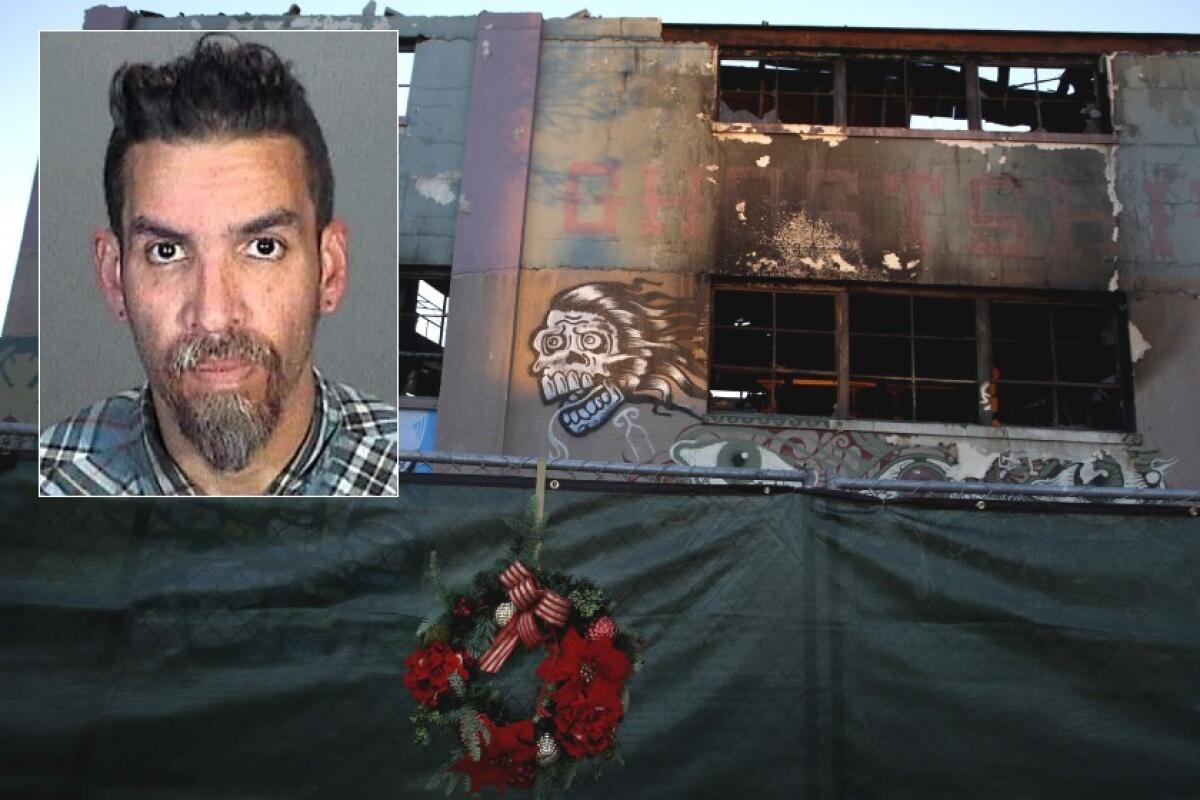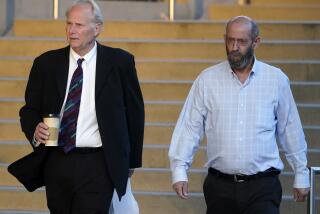Ghost Ship retrial further delayed due to coronavirus

- Share via
The Ghost Ship criminal retrial of master tenant Derick Almena could be delayed until 2021 because of the COVID-19 pandemic.
After a hearing on Friday, Judge Trina Thompson set the next court date as Oct. 1. That date is only to set the future trial date, which means the start of the trial could still be several months away.
Thompson also indicated that if the pandemic causes another continuance, the date of Feb. 22, 2021, was given as the potential new trial date. At that time, it will have been four years since the fire that ripped through the Ghost Ship warehouse, killing 36 people.
Almena, 50, will be retried on 36 counts of involuntary manslaughter for the deaths of three dozen people who perished in the East Oakland warehouse fire on Dec. 2, 2016. Last September, a jury could not reach a conclusion on his charges, deadlocking 10-2 in favor of guilt.
Almena’s retrial was originally supposed to start in April, but because of the shelter-in-place order, instead was reset for July.
Almena has been out of jail since May 4, after he posted $150,000 bail, and he is living in Lake County with his family. Thompson agreed to lower his bail from $750,000 after his attorneys argued that he was vulnerable to contracting the the coronavirus inside the Dublin jail.
Almena and former Ghost Ship tenant Max Harris were arrested in June 2017, and each was charged with 36 counts of involuntary manslaughter. In September, a jury acquitted Harris of all 36 counts; following the verdict, Harris was released from jail and is now living in Oregon.
Almena was the master tenant who signed the lease in 2013 with the understanding with the owners that the Fruitvale district warehouse building would only be used as an art collective. Instead, he rented out the warehouse as a living space to others, the prosecution alleges, and allowed it to be filled to the brim with art, furniture, pianos and other items.
The warehouse was also used for dance parties and other gatherings, much like the one on Dec. 2, 2016, that was taking place when the fire broke out. The fire spread so quickly that most of those on the second floor where the event was being held were trapped and unable to escape the flames and smoke. All 36 victims, one of whom was a tenant of the warehouse, died of smoke inhalation.
Friday’s hearing with the judge and attorneys was held as a teleconference, because of the court’s closure due to the shelter-in-place order. The conferences are not open to the public, and both the prosecution and defense attorneys are under a judge’s gag order to not speak publicly about the case.
More to Read
Sign up for Essential California
The most important California stories and recommendations in your inbox every morning.
You may occasionally receive promotional content from the Los Angeles Times.













